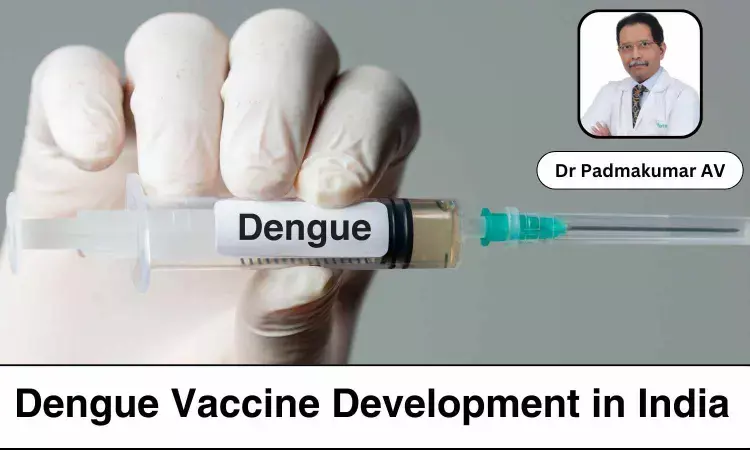- Home
- Medical news & Guidelines
- Anesthesiology
- Cardiology and CTVS
- Critical Care
- Dentistry
- Dermatology
- Diabetes and Endocrinology
- ENT
- Gastroenterology
- Medicine
- Nephrology
- Neurology
- Obstretics-Gynaecology
- Oncology
- Ophthalmology
- Orthopaedics
- Pediatrics-Neonatology
- Psychiatry
- Pulmonology
- Radiology
- Surgery
- Urology
- Laboratory Medicine
- Diet
- Nursing
- Paramedical
- Physiotherapy
- Health news
- Fact Check
- Bone Health Fact Check
- Brain Health Fact Check
- Cancer Related Fact Check
- Child Care Fact Check
- Dental and oral health fact check
- Diabetes and metabolic health fact check
- Diet and Nutrition Fact Check
- Eye and ENT Care Fact Check
- Fitness fact check
- Gut health fact check
- Heart health fact check
- Kidney health fact check
- Medical education fact check
- Men's health fact check
- Respiratory fact check
- Skin and hair care fact check
- Vaccine and Immunization fact check
- Women's health fact check
- AYUSH
- State News
- Andaman and Nicobar Islands
- Andhra Pradesh
- Arunachal Pradesh
- Assam
- Bihar
- Chandigarh
- Chattisgarh
- Dadra and Nagar Haveli
- Daman and Diu
- Delhi
- Goa
- Gujarat
- Haryana
- Himachal Pradesh
- Jammu & Kashmir
- Jharkhand
- Karnataka
- Kerala
- Ladakh
- Lakshadweep
- Madhya Pradesh
- Maharashtra
- Manipur
- Meghalaya
- Mizoram
- Nagaland
- Odisha
- Puducherry
- Punjab
- Rajasthan
- Sikkim
- Tamil Nadu
- Telangana
- Tripura
- Uttar Pradesh
- Uttrakhand
- West Bengal
- Medical Education
- Industry
Dengue Vaccine Development in India: Paving the Path for a Safer Tomorrow - Dr Padmakumar AV

Dengue fever, a mosquito-borne viral infection, poses a significant public health challenge in India. With nearly a third of the global population susceptible to dengue, the country grapples with the burden of this disease.
Despite the existence of a licensed vaccine, Dengvaxia, safety concerns have hindered its widespread use. However, India is not deterred by these challenges and is actively pursuing the development of indigenous dengue vaccines.
The Need for a Safe and Effective Vaccine:
India's vast population and diverse geographical landscape make it particularly susceptible to dengue outbreaks. From urban centres to rural communities, no corner of the country is immune to the threat of dengue.
The spectrum of dengue disease ranges from Dengue without warning signs (Mild Dengue), dengue with warning signs (Moderate Dengue), severe dengue which can prove fatal if not treated promptly. This underscores the urgent need for a safe and effective vaccine to combat this pervasive threat.
Challenges with Existing Options:
The licensed dengue vaccine, Dengvaxia, developed by Sanofi, has faced criticism due to safety concerns. Studies have indicated an increased risk of severe dengue in individuals who have not been previously infected with all four dengue serotypes.
Consequently, Indian authorities have rejected waiving phase 3 trials for Dengvaxia, citing insufficient data to ensure its safety and efficacy in the local population.
Hopeful Developments:
Despite the setbacks with Dengvaxia, there are promising developments on the horizon for dengue vaccine development in India. Indigenous efforts spearheaded by research institutes are actively underway to develop at least two indigenous dengue vaccine candidates.
Additionally, India is collaborating on international trials for promising candidates like the live-attenuated tetravalent vaccine, demonstrating a commitment to finding a safe and effective solution to combat dengue.
The Road Ahead:
The path forward in dengue vaccine development in India involves rigorous clinical trials and a focus on addressing key challenges.
Several indigenous and collaborative vaccine candidates are currently undergoing clinical trials, with the aim of developing a safe and broadly protective vaccine.
It is imperative that these vaccines target all four dengue serotypes to provide comprehensive protection against the disease.
Future Scope:
As India progresses in its quest for a dengue vaccine, there are several areas that warrant attention for future research and implementation.
Addressing knowledge gaps regarding the correlation between immune response and protection against specific dengue serotypes is essential for developing effective vaccines.
Furthermore, strategic implementation of vaccination policies targeting high-risk groups and effective disease management protocols will be critical in controlling dengue outbreaks.
India's active involvement in dengue vaccine development holds promise for a future where the burden of this disease is significantly reduced.
Despite the challenges posed by existing vaccines, indigenous efforts and international collaborations offer hope for the development of safe and effective solutions.
With a concerted focus on clinical trials, research, and strategic implementation, India is paving the path for a safer tomorrow, where dengue no longer poses a significant threat to public health.
Dr Padmakumar AV (MBBS, MD (General Medicine), ICCM Critical Care, JFICM (Part I & Core ICU) Critical Care) is the Senior Director at Department Of Critical Care Medicine, Fortis Hospital, Bannerghatta Road. He has over 28 years of experience in the field of Critical Care Medicine.


